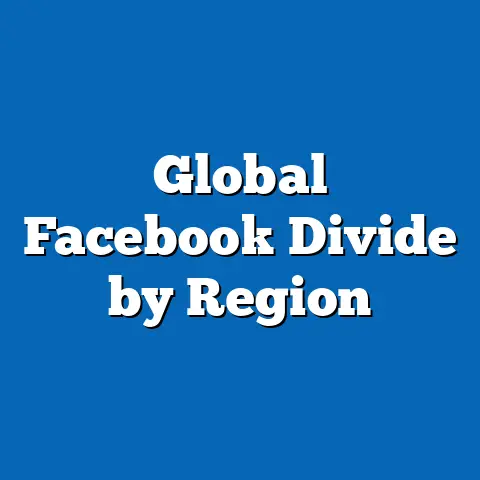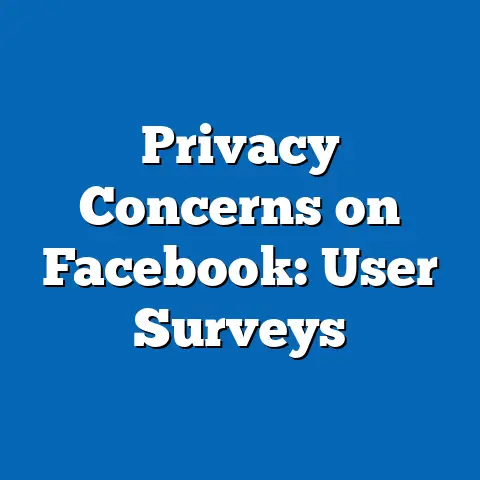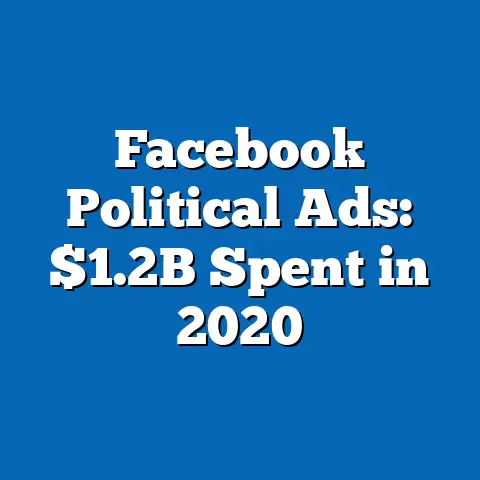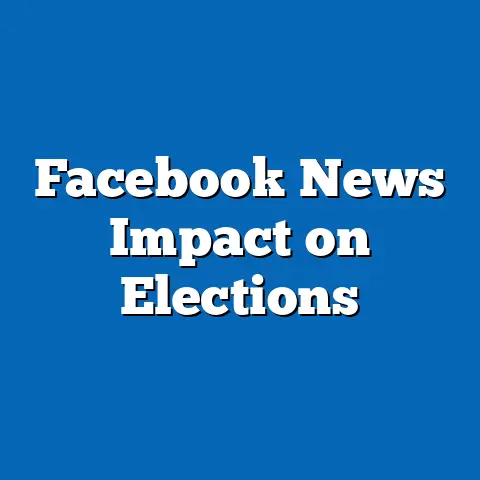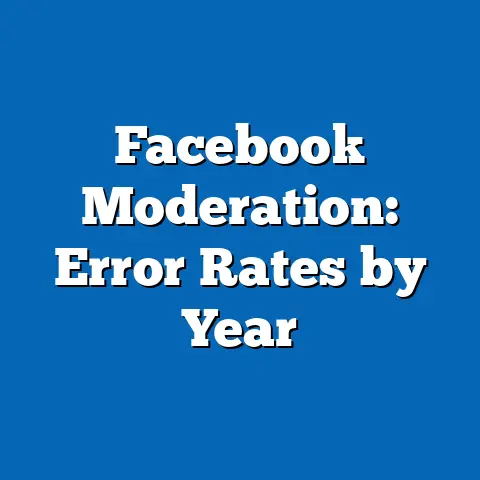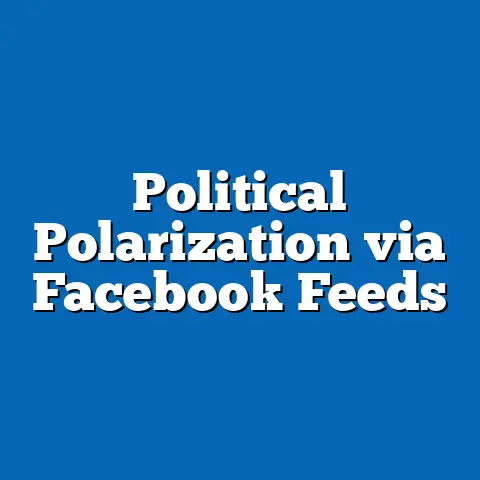Gen Z Distrusts Facebook (72% Gen Z skeptical)
Gen Z Distrusts Facebook: A Deep Dive into the 72% Skepticism in 2024
Introduction: Nostalgia and the Digital Disconnect
Remember the early 2000s, when logging into Facebook meant reconnecting with high school friends, sharing grainy photos of college parties, and poking someone just for the fun of it? For Millennials and older Gen Xers, Facebook was a digital revolution—a virtual scrapbook that chronicled life’s milestones. But for Generation Z, born roughly between 1997 and 2012, the platform evokes little of that warmth or novelty.
Instead, Gen Z views Facebook through a lens of skepticism, with a staggering 72% expressing distrust toward the social media giant in 2024, according to a recent survey by Pew Research Center. This statistic isn’t just a number; it’s a cultural signal of how generational values, technological evolution, and societal shifts have reshaped trust in digital spaces. Why does a platform that once defined social connectivity now face such profound rejection from the youngest adult cohort?
This article explores the roots of Gen Z’s distrust in Facebook, delving into their defining characteristics, the historical context that shaped their worldview, and the broader societal implications of this trend. By examining technological, cultural, and economic factors, we aim to unpack the nuances of this skepticism while avoiding oversimplifications. Ultimately, we’ll consider what this means for the future of social media, privacy, and intergenerational dynamics.
Defining Generation Z: Who Are They?
Generation Z, often referred to as “Zoomers,” encompasses individuals born between 1997 and 2012, though exact boundaries vary depending on researchers. They are the first true digital natives, growing up with smartphones, high-speed internet, and social media as integral parts of their lives. Unlike Millennials, who adapted to technology during their formative years, Gen Z has never known a world without it.
Key characteristics of Gen Z include pragmatism, diversity, and a heightened awareness of social issues. Studies, such as those from McKinsey (2020), highlight their focus on individuality, mental health advocacy, and environmental sustainability. They are also financially cautious, having come of age during or after the 2008 financial crisis, which instilled a sense of economic uncertainty.
Politically and socially, Gen Z leans progressive, with a strong emphasis on inclusion and equity, shaped by movements like Black Lives Matter and climate activism. However, they are not a monolith—cultural, geographic, and socioeconomic differences create significant diversity within the cohort. Their shared experience, though, is a hyper-connected, information-saturated digital environment that influences how they perceive trust and authenticity.
Historical Context: Growing Up in a Post-Truth Era
To understand Gen Z’s distrust of Facebook, we must consider the historical backdrop of their formative years. Born in the late 1990s to early 2010s, their childhood and adolescence coincided with major global upheavals. The 2008 financial crisis left lasting impressions of economic instability, often witnessed through their parents’ struggles.
Simultaneously, the rise of social media transformed communication, but not without controversy. The 2016 U.S. presidential election and the Cambridge Analytica scandal, which unfolded when many Gen Zers were tweens or teens, exposed how Facebook could be weaponized for misinformation and data exploitation. This event, in which personal data from millions of users was used to influence voter behavior, became a defining moment in public discourse about digital privacy.
Moreover, Gen Z grew up during the proliferation of “fake news” and online echo chambers. Unlike older generations who may have initially seen social media as a unifying force, Gen Z witnessed its darker side—cyberbullying, viral hoaxes, and algorithmic bias. These experiences fostered a critical stance toward platforms like Facebook, which they associate with outdated interfaces and ethical lapses.
The Snowden leaks of 2013, revealing mass surveillance by governments and tech companies, further eroded trust in digital institutions. For a generation already navigating identity and privacy in online spaces, such revelations cemented a wariness of Big Tech. Facebook, as a symbol of that era’s unchecked power, became a frequent target of their skepticism.
Technological Factors: Why Facebook Feels Outdated to Gen Z
One of the most immediate reasons for Gen Z’s distrust is technological obsolescence. When Facebook launched in 2004, it was a pioneering platform for connection. But for Gen Z, it’s the digital equivalent of a flip phone—clunky, outdated, and lacking the sleek, intuitive design of competitors like TikTok or Instagram (ironically, also owned by Meta, Facebook’s parent company).
Gen Z prioritizes platforms that align with their consumption habits: short-form video, ephemeral content, and visually driven interfaces. A 2023 report from Statista found that only 32% of Gen Z users in the U.S. actively use Facebook, compared to 76% on Instagram and 67% on TikTok. They perceive Facebook as a space for older generations, often joking that it’s where “boomers” and “aunts” share memes or argue about politics.
Beyond aesthetics, Gen Z’s distrust stems from functionality and privacy concerns. Facebook’s algorithm, which often prioritizes sensationalist content, clashes with their desire for authentic, community-driven interactions. Additionally, repeated data breaches—such as the 2019 incident affecting 540 million users—have reinforced perceptions of the platform as insecure.
In contrast, platforms like Snapchat and Discord offer more control over privacy settings and foster smaller, trusted networks. Gen Z’s preference for these alternatives reflects a broader shift toward digital spaces that feel safer and more aligned with their values. Facebook, with its history of invasive data practices, struggles to regain their confidence.
Cultural Shifts: Authenticity Over Performative Connection
Culturally, Gen Z values authenticity and transparency, often rejecting the curated, performative nature of early social media. Facebook, in its heyday, encouraged oversharing—think status updates about mundane daily activities or public declarations of relationship statuses. For Gen Z, this feels inauthentic and outdated.
Instead, they gravitate toward platforms that allow for raw, unfiltered expression. TikTok, for instance, thrives on candid, often humorous content that feels relatable rather than polished. A 2022 study by YPulse found that 68% of Gen Z users value “realness” in online interactions, a quality they rarely associate with Facebook.
Moreover, Gen Z is hyper-aware of mental health implications tied to social media. They’ve grown up with research linking platforms to anxiety and comparison culture, and many view Facebook’s focus on likes and public validation as toxic. This cultural shift toward mindfulness and self-care further distances them from a platform perceived as superficial or exploitative.
Facebook’s association with political polarization also plays a role. Gen Z, while politically engaged, often distrusts spaces where divisive rhetoric dominates. The platform’s role in spreading misinformation during elections and crises has tainted its reputation as a credible source of information, pushing Gen Z toward niche communities or direct news outlets.
Economic Dimensions: The Cost of Trust
Economically, Gen Z’s distrust of Facebook ties into their broader skepticism of corporate motives. As a generation entering adulthood amid inflation, student debt, and gig economy challenges, they are acutely aware of how companies monetize user data. Facebook’s business model—relying heavily on targeted advertising—feels predatory to many.
A 2024 survey by Deloitte revealed that 64% of Gen Z consumers are concerned about how their data is used for profit, with many citing Facebook as a primary offender. High-profile scandals, such as the 2018 Cambridge Analytica fallout, have heightened their awareness of data as a commodity. Unlike older generations who may accept privacy trade-offs for convenience, Gen Z demands transparency and accountability.
This economic lens also influences their perception of Meta’s rebranding efforts. While the company has attempted to pivot toward the metaverse and younger demographics, Gen Z remains skeptical of these moves as profit-driven rather than user-focused. Their financial pragmatism translates into a reluctance to invest time or trust in a platform they view as exploitative.
Societal Implications: What Does This Distrust Mean?
The 72% distrust statistic isn’t just a reflection of Gen Z’s attitudes—it’s a harbinger of broader societal shifts. First, it signals a generational divide in how trust is built and maintained in digital spaces. While older generations may still use Facebook for nostalgia or practical purposes (e.g., event planning, Marketplace), Gen Z’s rejection highlights a demand for platforms that prioritize ethics over engagement metrics.
This trend has implications for the workplace as well. As Gen Z enters professional environments, their skepticism of legacy tech could push companies to adopt newer, more transparent communication tools. HR departments, for instance, may need to rethink reliance on Facebook for recruitment or employee engagement, favoring platforms like LinkedIn or even Discord for younger talent.
Culturally, Gen Z’s distrust contributes to a growing discourse on digital privacy and regulation. Their vocal criticism of Big Tech aligns with global movements for stricter data protection laws, such as the EU’s General Data Protection Regulation (GDPR). Policymakers may find in Gen Z a powerful ally for advocating reforms, as this generation is less likely to accept unchecked corporate power.
On a societal level, this skepticism could reshape social connectivity itself. If Gen Z continues to abandon platforms like Facebook in favor of fragmented, niche communities, we may see a decline in the “global village” ideal that social media once promised. Instead, digital interactions could become more insular, raising questions about how information and ideas spread across generations.
Comparing Generational Perspectives: Beyond Stereotypes
It’s tempting to frame Gen Z’s distrust as a simple rejection of “old” technology, but comparing their attitudes with those of Millennials and Gen X reveals deeper nuances. Millennials, born between 1981 and 1996, often maintain a nostalgic attachment to Facebook, viewing it as a digital time capsule of their youth. A 2023 Pew survey found that 54% of Millennials still use the platform regularly, despite privacy concerns.
Gen X, born between 1965 and 1980, tends to approach Facebook pragmatically, using it for family connections or professional networking. Their trust levels are higher than Gen Z’s, with only 38% expressing skepticism in the same 2024 Pew study. This may reflect a less critical view of technology, shaped by a time when digital privacy wasn’t a mainstream concern.
Gen Z, by contrast, lacks the emotional tether to Facebook that older generations feel. Their skepticism isn’t just about the platform’s functionality—it’s about what it represents: corporate overreach, outdated norms, and a failure to adapt to modern values. Yet, it’s crucial to avoid stereotyping; not all Gen Zers reject Facebook outright, especially in regions where it remains a primary tool for communication or access to information.
Diversity Within Gen Z: Not a Monolith
While the 72% distrust figure is striking, it’s important to acknowledge the diversity within Gen Z. Socioeconomic status, for instance, influences platform usage—those in lower-income brackets may rely on Facebook for affordable internet access through initiatives like Free Basics, despite privacy concerns. A 2022 World Bank report noted that in developing regions, Facebook remains a gateway to digital inclusion for many young users.
Cultural differences also play a role. In countries like India or the Philippines, where Facebook is deeply embedded in social and economic life, Gen Z’s trust levels may be higher compared to their Western counterparts. Geographic and personal contexts shape how skepticism manifests, reminding us that generational trends are not universal.
Gender and political ideology further complicate the picture. Research from the American Psychological Association (2023) suggests that Gen Z women are more likely to distrust social media platforms due to experiences with online harassment, while politically conservative Gen Zers may criticize Facebook for perceived censorship. These variations highlight the need for nuanced analysis over broad generalizations.
Expert Perspectives and Quantitative Insights
Experts in digital sociology and generational studies offer valuable context for understanding this trend. Dr. Jean Twenge, author of iGen, argues that Gen Z’s distrust is a natural response to growing up in a “post-privacy” world where data breaches are normalized. She notes, “They’ve seen the consequences of oversharing and corporate exploitation firsthand, so their skepticism is a form of self-protection.”
Quantitative data supports these insights. The 2024 Pew Research Center survey, which found 72% of Gen Z expressing distrust in Facebook, also revealed that 58% believe social media companies prioritize profits over user safety. This aligns with a 2023 Edelman Trust Barometer report showing that only 29% of Gen Z globally trust tech companies to “do the right thing.”
These figures underscore a broader erosion of institutional trust among Gen Z, extending beyond Facebook to Big Tech as a whole. Their critical stance isn’t merely personal—it’s part of a generational ethos that questions authority and demands accountability.
Forward-Looking Insights: The Future of Trust in Digital Spaces
Looking ahead, Gen Z’s distrust of Facebook raises critical questions about the future of social media and digital trust. Will platforms adapt to meet this generation’s demand for transparency, or will they continue to lose relevance among younger users? Meta’s investments in the metaverse and AI suggest an attempt to pivot, but early reception among Gen Z has been lukewarm at best.
One potential outcome is the rise of decentralized, user-owned platforms that prioritize privacy over profit. Blockchain-based social networks, though still niche, could appeal to Gen Z’s values, offering a counterpoint to centralized giants like Facebook. However, scalability and accessibility remain barriers to widespread adoption.
Another possibility is increased regulation of tech companies, driven by Gen Z’s advocacy for digital rights. As this generation gains political and economic influence, their skepticism could pressure governments to enforce stricter data protection laws, reshaping the online landscape for all users.
Yet, uncertainties remain. Will Gen Z’s distrust extend to all forms of social media, or is it specific to platforms they associate with ethical failings? And how will their attitudes evolve as they age, potentially adopting more pragmatic views akin to older generations? These questions lack definitive answers, but they highlight the dynamic nature of generational trends.
Conclusion: A Generational Reckoning with Digital Trust
Generation Z’s 72% distrust of Facebook in 2024 is more than a statistic—it’s a window into a generational reckoning with digital trust, privacy, and authenticity. Shaped by historical events like the Cambridge Analytica scandal, cultural shifts toward realness, and technological preferences for newer platforms, Gen Z’s skepticism reflects a broader demand for accountability in the digital age. Their rejection of Facebook isn’t just personal; it’s a critique of corporate overreach and outdated norms.
The societal implications are profound, from workplace dynamics to policy reform and the future of social connectivity. While diversity within Gen Z and comparisons with older generations reveal nuances, the overarching trend is clear: trust must be earned, not assumed. As we look to the future, the question isn’t whether Facebook can win back Gen Z, but whether the digital ecosystem as a whole can adapt to their values.
In an era of rapid technological change, Gen Z’s stance serves as a reminder that no platform is immune to generational shifts. Their distrust may be a challenge for Meta, but it’s also an opportunity for society to rethink how we build, sustain, and protect trust in the digital world. The path forward is uncertain, but one thing is evident: Gen Z will play a pivotal role in shaping it.

